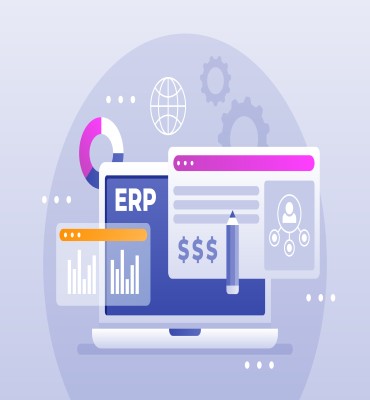ERP (Enterprise Resource Planning) software
What is ERP Software?
ERP software is an integrated suite of applications designed to manage and automate core business processes such as finance, supply chain, human resources, manufacturing, and customer relationship management. By centralizing data and processes, ERP systems provide a single source of truth for decision-makers.
Why is ERP Important?
Implementing ERP software offers numerous benefits, including:
- Improved Efficiency: Automating routine tasks and streamlining processes reduce manual efforts and errors.
- Centralized Data Management: All business information is stored in a unified platform, ensuring consistency and accessibility.
- Enhanced Decision-Making: Real-time data insights enable businesses to make informed and strategic decisions.
- Scalability: ERP systems can grow with your business, supporting expansion and increasing complexity.
- Regulatory Compliance: Many ERP solutions include features that help businesses adhere to industry regulations and standards.
Key Features of ERP Software
- Finance and Accounting: Manage budgets, financial planning, and reporting with accuracy.
- Supply Chain Management: Optimize inventory, procurement, and logistics for seamless operations.
- Human Resources: Oversee employee data, payroll, recruitment, and performance tracking.
- Customer Relationship Management (CRM): Enhance customer satisfaction with better service and relationship management tools.
- Manufacturing: Streamline production processes, monitor equipment, and manage resources efficiently.
Industries Benefiting from ERP
ERP systems are versatile and cater to various industries:
- Manufacturing: For inventory management, production planning, and quality control.
- Healthcare: To manage patient records, billing, and compliance with healthcare regulations.
- Retail: To oversee inventory, sales, and customer engagement.
- Education: To handle student information systems, staff management, and financial operations.
Trends in ERP Software
- Cloud-Based ERP: Offering flexibility, scalability, and reduced infrastructure costs.
- AI and Machine Learning: Enhancing predictive analytics and automating routine tasks.
- Mobile Accessibility: Allowing users to access ERP systems from smartphones and tablets.
- IoT Integration: Connecting devices to gather real-time data for enhanced decision-making.
Choosing the Right ERP Solution
Selecting the right ERP software is crucial for maximizing its benefits. Consider the following:
- Business Needs: Identify the specific challenges and goals you aim to address.
- Customization: Choose a solution that can adapt to your unique processes.
- User-Friendliness: Ensure the software is intuitive for your team to use.
- Cost: Balance features and scalability with your budget.
- Vendor Support: Opt for a provider offering robust customer service and training.
Final Thoughts
ERP software is no longer a luxury but a necessity for businesses striving for efficiency and growth in the digital era. By integrating core processes into a unified system, ERP empowers organizations to operate smarter, faster, and more competitively.
If you're considering ERP software for your business, take the time to evaluate your needs, research solutions, and consult with experts to ensure a smooth implementation. The right ERP system can be the catalyst for transformative success.
Need help choosing or implementing ERP for your business? Contact us at StarNine Solutions for expert guidance and tailored solutions.

